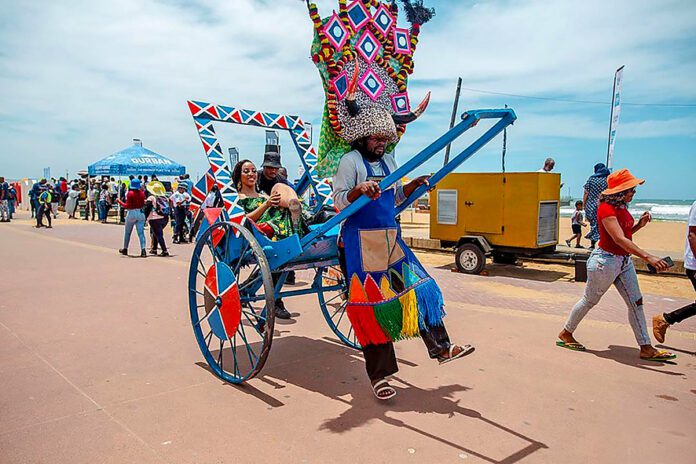Lindani Gcwabaza, a tourism operator in Inanda, north of Durban, had big dreams of putting his place of birth on the map when he started a tourism business telling the rich history the township boasts of.
The township surrounded by Ntuzuma, Phoenix and KwaMashu has an impeccable history of resistance and the struggle against apartheid.
It is home to ANC stalwart John Langalibalele Dube, who among his many legacies include building respected educational institutions in the area, which were used as a reservoir of knowledge and to drive political activism among the surrounding communities at the height of apartheid.
This backdrop is what prompted Gcwabaza to start a tourism business. But after 12 years of running a thriving venture centred around providing accommodation and conducting tours for tourists, he now wants out.
“My business did very well for a few years, but crime levels are scaring away tourists. My clients are tourists from countries such as England, Australia and China, who usually visit to learn more about the history of Inanda. I also conduct tours for university students doing research. Because of safety concerns, we have seen a reduced number in international tourists,” said Gcwabaza.
He said tourists were soft targets because criminals had the perception that they carried valuables with them.
“At one stage, the situation got so bad that there was a gang whose sole mission was to target tourists. They would be mugged at gunpoint and sometimes ambushed while visiting tourism attractions. It’s very difficult to run a business under these conditions,” he said.
He said several tour operators had resorted to hiring private security to escort tourists, but for some the costs are unbearable.
Last week, police minister Bheki Cele released quarterly crime statistics that reflected a frightening picture putting Inanda and Umlazi townships as the most dangerous places to live in. The two sprawling townships accounted for most murders committed between July and September. KwaZulu-Natal overall had the highest number of murder cases at 1 857, an increase of 6.5%.
The statistics also show that the province occupied second place after Gauteng on reported rape cases, standing at 2 045 for the period under review.
Dr Lochan Naidoo, a respected addictionologist and former head of the International Narcotics Control Board, painted a gloomy picture, saying the murder rate was likely to increase due to the proliferation of drugs.
“The problem will get worse unless the government devises a multi-disciplinary approach involving communities, law enforcement agencies, the private sector and crime experts to deal head on with lawlessness.
“There is a new strategy where criminals target taverns and kill innocent patrons. This is part of a turf war over ownerships of pubs. The intention is to scare off competition,” said Dr Naidoo.
Nkosinathi Dubazane of the Inanda Policing Forum said some residents had taken it upon themselves to keep the community safe, like in all townships in South Africa.
“We are taking the war to criminals because we must reclaim the township from brazen thugs. We have different groups who accompany those going to work and coming back. It is dangerous work, but it must be done,” said Dubazane.
He said the township was too big and the police had no manpower. Inanda is characterised by informal settlements and the mushrooming of liquor outlets.
Other crimes that increased include attempted murder with 1 614 cases, sexual offences at 2 458 cases and contact crime with 27 458 cases reported.
Follow @SundayWorldZA on Twitter and @sundayworldza on Instagram, or like our Facebook Page, Sunday World, by clicking here for the latest breaking news in South Africa. To Subscribe to Sunday World, click here.
Sunday World



